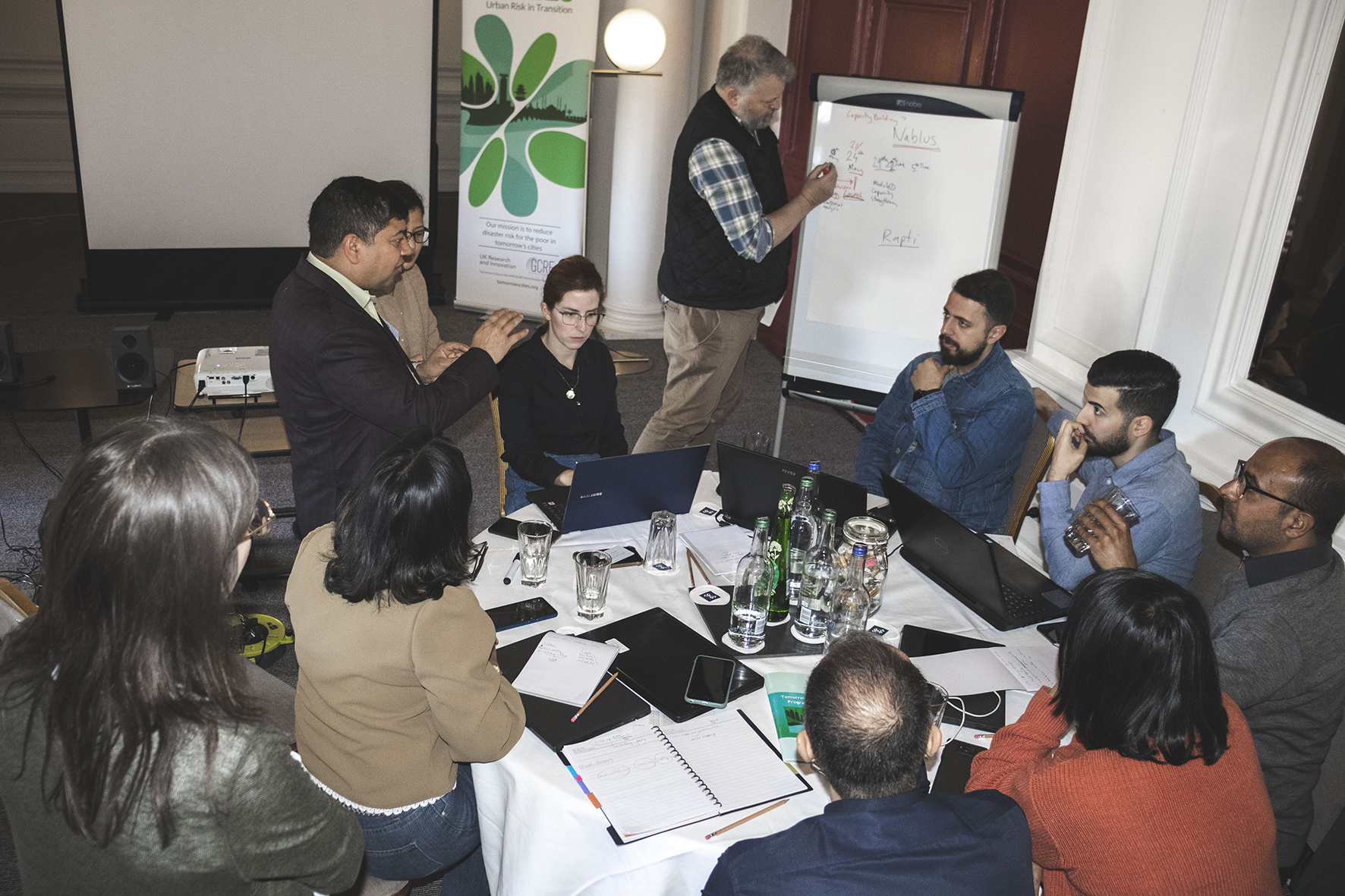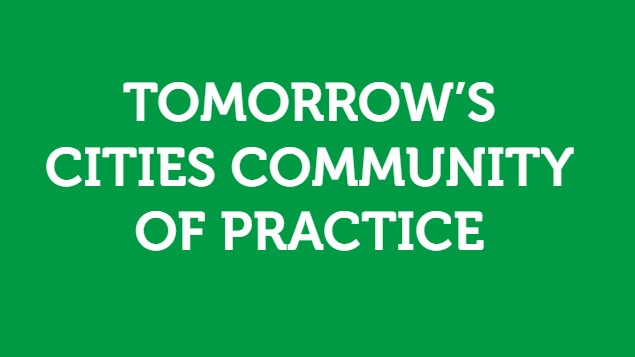
- Close
04/05/2023 |
Tomorrow’s Cities Hub members review Capacity Strengthening Curricula & Course materials

Tomorrow’s Cities Hub members gathered in Edinburgh and reviewed the concept, approach, methodology and contents of the Capacity Strengthening Curricula based on and modeled around the Tomorrow’s Cities Decision Support Environment (TCDSE) and its work packages.
During a 5-day meeting in Scotland, between 17th and 21st of April, and attended by more than 40 members of the Hub, including the Capacity Strengthening module leads from the National Society for Earthquake Technology – Nepal (NSET), activities for the upcoming year in two new cities – Rapti in Nepal and Nablus in Palestine – were organized. During the meeting members of the Hub discussed and finalized the curricula and course materials for the Capacity Strengthening Programme.
The Capacity Strengthening program, which is going to be a key aspect for the legacy of the Tomorrow’s Cities, was discussed with each of the corresponding work package leaders and researchers. During the meeting, the hub members were assigned key activities within each work package.
Along with the work packages, the module leads from NSET presented the development of the Capacity Strengthening curricula for all modules: M0 (City Scoping and Set up), M1(Future Visioning), M2 (Visioning Scenario), M3 (Multi-hazard Physical and Social Impact Assessments) and M4 (Risk Agreement and Scenario Assessment).
The experience and outcomes of the test course conducted for the Hub members in February and March were also shared. In the plenary, valuable feedback was received from the hub members on it. The hub members and the NSET team involved in the development of the instruction materials received encouraging remarks from the work package leads and the senior management team for their efforts.

One of the key suggestions received for the Capacity Strengthening modules was the importance of conveying the idea of iteration in the Tomorrow’s Cities Decision Support Environment and include that in each module. This was suggested to inject an idea that the process should be an iterative loop rather than a straight-forward start to finish process to decide the “best among the many” developed scenarios. Learning from the first iteration, the subsequent loops allow stakeholders to imagine many more different scenarios which were not evident in the first iteration. Also, M4 contents has been revised with moving few of its sessions to M2 and addition of few new sessions in M4.
The produced materials for the Capacity Strengthening program, including the presentations, participants’ and instructors’ workbooks, lesson plans were also discussed. Additionally, the 2-day M0 workshop was planned, including discussions for the format of the MoU to be signed between the city authority and Tomorrow’s Cities for collaboration. In the event, feedbacks were also received on the draft communication materials developed for cities including work package-wise flyers, Capacity Strengthening brochure, Capacity Strengthening booklet and city engagement document.
During the detail planning of work packages, the schedule for the Capacity Strengthening modules were also discussed for Rapti and Nablus. The Capacity Strengthening modules that will be delivered in Rapti and Nablus are going to be instrumental in the successful implementation of the Tomorrow’s Cities Decision Support Environment in the 2 cities. The target participants include stakeholders from government authorities, people’s representatives, academia, civil society, professionals, and the community themselves. These include people from both technical and non-technical backgrounds and also include key decision-makers of these future cities.
The Edinburgh Meeting was a successful event that allowed the Tomorrow’s Cities team to plan for the upcoming year in Rapti and Nablus, while the discussions around the Capacity Strengthening program were particularly insightful and emphasized the importance of an iterative approach in the Tomorrow’s Cities Decision Support Environment. The project team is now looking forward to implementing the Capacity Strengthening modules and continuing to work towards risk informed planning for Rapti and Nablus reducing disaster risk.



